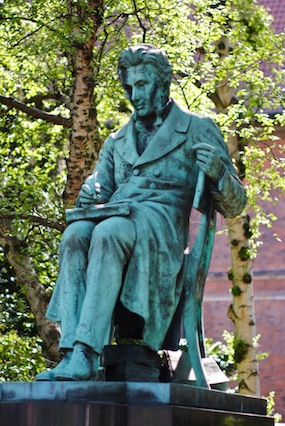SECTION III: How do I know?
Reading 5: Kierkegaard, from Philosophical Fragments and Concluding Unscientific Postscript
The Danish, 19th Century philosophy, Søren Kierkegaard, begins our discussion of pragmatic rationality alongside epistemic rationality. Kierkegaard believes that religious belief is epistemically irrational - we lack the objective grounds on which to affirm the truth of God's existence. But Kierkegaard believes that religious belief is nevertheless pragmatically rational, and indeed that recognition of its epistemic irrationality is an important component of achieving the desired result. Click Here for the Reading File in .pdf format.
|
|
"Faith is precisely the contradiction between the infinite passion of the individual's inwardness and the objective uncertainty. If I am capable of grasping God objectively, I do not believe, but precisely because I cannot do this I must believe." |
A statue of Kierkegaard by the Danish sculptor, Louis Hasselriis (1879)
|
|
|
Go on to Feuerbach. |
|
Go back to the Problem of Evil. |
|

